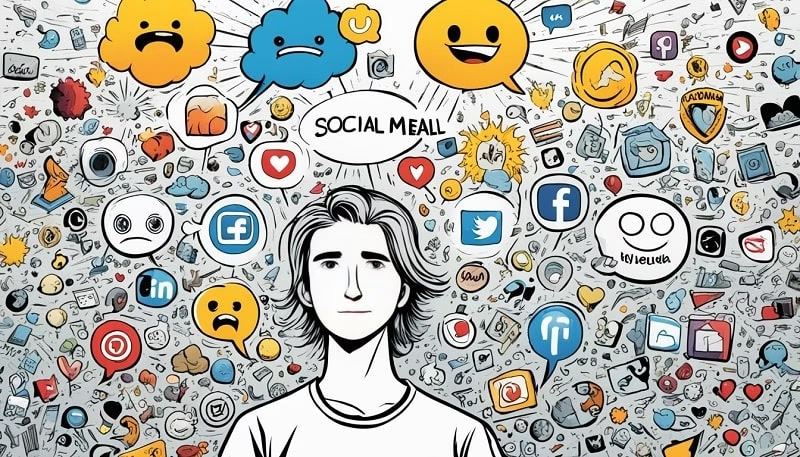Introduction
In today’s digital age, teenagers are spending a significant amount of time on social media platforms. While these platforms provide opportunities for connection, entertainment, and self-expression, they also have a profound impact on mental health. Therefore, this article explores how social media affects teenagers’ mental well-being and offers actionable tips to foster healthier habits.
The Negative Impacts of Social Media on Teenagers’ Mental Health
- Increased Anxiety and Depression Social media often creates an environment of comparison, where teenagers feel pressured to live up to unrealistic standards. As a result, this comparison can lead to feelings of inadequacy, low self-esteem, and, in severe cases, anxiety and depression.
- Sleep Disruption Excessive screen time, especially before bed, can interfere with sleep patterns. Consequently, teenagers who scroll late at night are more likely to experience poor-quality sleep, affecting their overall mental health and productivity.
- Cyberbullying The anonymity of social media can sometimes foster harmful behavior like cyberbullying. For instance, teenagers who are victims of online harassment often experience stress, fear, and emotional trauma.
- Addiction and Reduced Attention Span Social media platforms are designed to be addictive. As a result, continuous scrolling reduces attention spans and impacts a teenager’s ability to focus on studies or engage in meaningful offline activities.
- Distorted Body Image Teenagers are exposed to edited and filtered images, which can create unrealistic body expectations. Consequently, this often leads to negative body image issues.
Positive Aspects of Social Media
- Opportunities for Learning Social media provides access to educational content, helping teenagers gain knowledge and skills in areas of interest. For example, platforms like YouTube and LinkedIn offer valuable resources for personal development.
- Building Connections Platforms like Instagram, TikTok, and Snapchat allow teenagers to stay connected with friends and family, fostering a sense of belonging. Therefore, social media can be a source of emotional support.
- Encouraging Creativity Many teenagers use social media to showcase their talents, such as art, music, or writing. Thus, it promotes self-expression and boosts confidence.
Tips to Improve Social Media Habits
- Set Screen Time Limits Use apps or built-in phone features to monitor and limit daily social media usage. As a guideline, aim for no more than 1-2 hours per day.
- Follow Positive Content Encourage teenagers to follow accounts that promote positivity, education, and mental health awareness rather than superficial or negative content. By doing so, their social media experience becomes more uplifting.
- Practice Digital Detox Designate specific times or days for a digital detox. For instance, weekends can be spent reconnecting with the offline world, reducing dependence on social media.
- Prioritize Sleep Hygiene Avoid using devices an hour before bedtime to promote better sleep. Instead, encourage other relaxing activities like reading or meditating.
- Foster Open Communication Create a safe space for teenagers to discuss their online experiences. As a result, they can share concerns about bullying, comparison, or other challenges without fear of judgment.
- Encourage Offline Activities Promote hobbies such as sports, arts, or volunteering that reduce reliance on virtual interactions. Moreover, these activities can boost mental well-being and social skills.
Conclusion
Social media has become an integral part of teenage life, with both positive and negative implications for mental health. However, by understanding its impacts and adopting healthier habits, teenagers can enjoy the benefits of these platforms while safeguarding their mental well-being. Therefore, parents, educators, and teenagers must work together to create a balanced digital lifestyle.
FAQs
- How much time should teenagers spend on social media? Experts recommend limiting social media use to 1-2 hours daily to prevent negative mental health effects.
- What are some signs that social media is affecting mental health? Signs include mood swings, reduced interest in offline activities, poor sleep, and declining academic performance.
- Can social media have positive effects on teenagers? Yes, when used mindfully, social media can promote learning, creativity, and connections.
